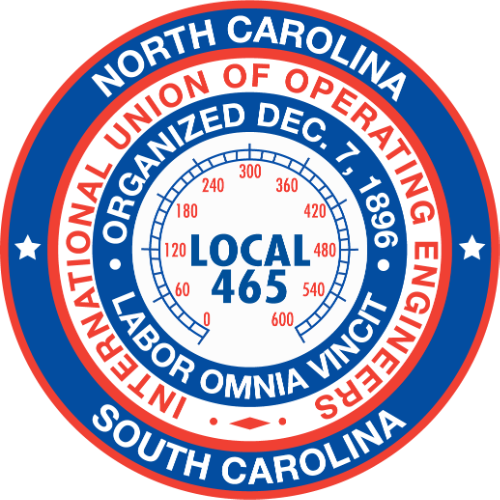About Your Local Union
What is a Union?
A union is an organization of employees who work in a specified trade, industry, or corporation, that come together to improve their salary, benefits, and working conditions. Unions meet for a common purpose, for mutual aid and protection, to engage in concerted activity and collective bargaining, and to elevate their conditions of life and labor.
Why are Unions Important?
Unions are important because they assist in setting the standards for education, skill levels, wages, working conditions, and quality of life for union workers. When union officials negotiate wages and benefits, they are generally superior to what non-union workers receive, such as winning the right to an 8-hour workday. Union officials will negotiate through legislation at the national, state, and local level which ultimately benefits all union members.
Most union contracts provide far more protection than state and federal laws. For example, majority of states follow a legal doctrine called "At Will Employment" which leaves non-union workers at risk to be fired for reasons that may not be arbitrary or for no reason at all.
Your Local Union:
As a member of your IUOE local union, you have specific rights and obligations. The members run our local unions by electing their own officers every three years. In this election, you have one vote, just like every other member. Candidates for office must meet certain requirements to be eligible for election (Registered apprentices cannot be candidates).
Your local union leadership is responsible for negotiating your contract and having it approved by the membership or the members who are covered by its conditions. Your contract sets your wages, fringe benefits, and conditions of work. It spells out the grievance procedures that must be followed should your employer violate the contract You can obtain a copy of your contract from your local union office*.
A democratic union can do an effective job only with the support of each individual member. This support is not only paying your dues but attending meetings and taking an active part in upholding the local union contracts, supporting local programs, and the rare, but occasionally necessary strike.
What your local union does for you:
- Negotiates and enforces contracts.
- Settles your grievances and jobsite problems.
- Dispatches its members to job sites.
- Ensures jobs belonging to engineers are staffed by engineers.
- Organizes
- Sponsors and maintains benefit plans.
- Keeps you informed and holds meetings.
- Supports fair labor legislation such as safety, social security, workers compensation, unemployment compensation, etc.
- Acts in your interest with the community as well as the management
- Sponsors social affairs for the membership such as bull roast, picnics, dances, etc.
Your Local Union Collective Bargaining Agreement:
A major function of your local union is collective bargaining, A process by which unions and employers negotiate terms of employment in a contract. The contract is a written agreement that the employer and union agree to enforce. Each local has contracts covering various segments of the industry. The contracts are approved by the members who are covered by the contracts’ conditions.
The collective Bargaining Agreement covers all aspects of employment:
- Wages
- Fringe benefits.
- Referral procedures
- Grievances and arbitration
- Jurisdiction
- Etc.
The wage provisions of the agreement specify how much the employees are to be paid for each job classification and type of work and in some contracts, the location of work. These include provisions for paid holidays, paid vacations, overtime rates, hours of work, and in many cases, minimum daily or weekly pay guarantees. They also include fringe benefits such as the health and welfare plan, pension fund, apprenticeship fund and training fund.
Your local union’s enforcement of the grievance procedure is the most important part of the contract. Without enforcement, the written agreement is ineffective. The grievance procedure protects members from arbitrary acts of the supervisor. Enforcement also ensures members are given just cause for discharge and discipline.
What Is a Good Member?
With rights come responsibilities, as a member of the International Union of Operating Engineers, it is YOUR obligation to:
- Be a productive and efficient worker.
- Produce the highest quality work possible (work we all can be proud of)
- Arrive at work on time and work all hours asked of you.
- Call the job site if you must be late or absent.
- Look presentable and be professional on the job site.
- Follow your union contract.
- Adhere to the contractors’ rules and regulations on the job; the contractor is your employer.
- Respect your fellow workers and help them achieve a safe and secure website.
- Participate in skill upgrade classes and utilize training centers to develop and keep your skills at the highest level.
- Know your union hiring hall, dispatch system or how to get a job if you are laid off.
- Make sure your telephone and address are up to date.
- Hold your union in the highest regard.
- Know how to contact your job steward, business agent, or local union for answers to questions or help with problems.
- Attending your local union meetings, this is the place to get information on your union.
- Pay dues and assessment on time, like any organization, a union needs funds to operate.
- Buy union made American products whenever possible.
- Be an active citizen and informed voter.
Why attend Union Meetings?
- To stay informed.
- To use your voice in local union affairs.
- For information on contracts, upcoming jobs, and training.
- To know the status of health and welfare, pension, and other benefit programs.
- To voice your concerns.
- To support one another.
